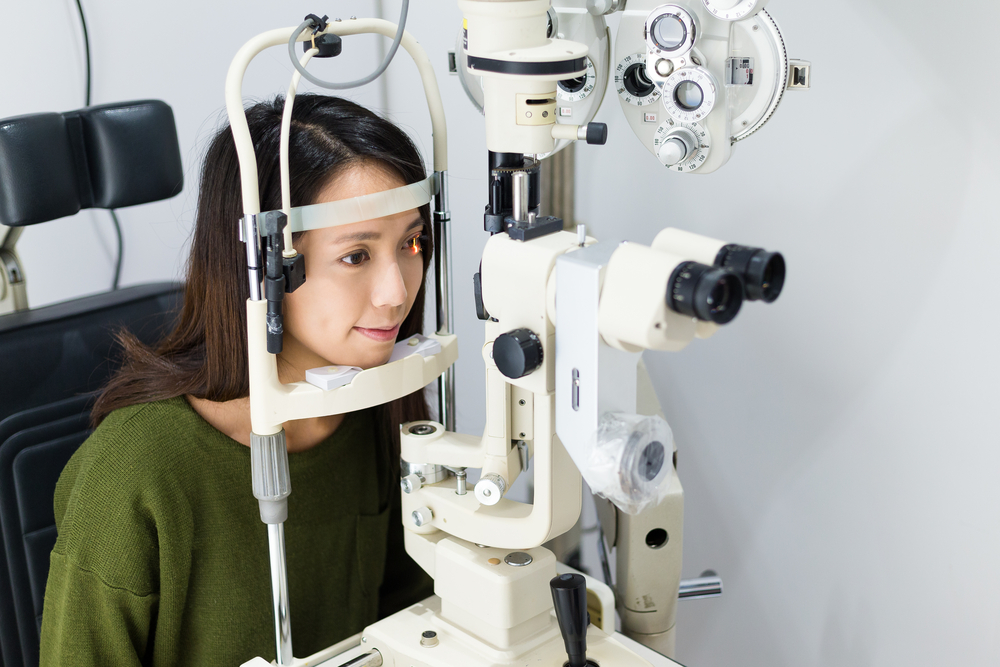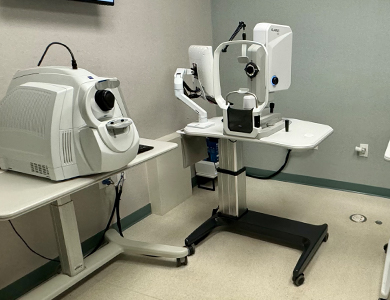
What to Expect During Your Comprehensive Eye Exam
Visiting your optometrist for a comprehensive eye exam is a key step in maintaining your eye health. At Napa Valley Optometric Group, our eye exams are designed not only to check your prescription but also to assess the overall health of your eyes. Many eye conditions can develop without noticeable symptoms, and early detection can make a significant difference in treatment outcomes. Here’s a detailed look at what you can expect during your comprehensive eye exam and why it’s essential for your well-being.
Discussing Your Eye and Health History
Your exam will begin with a conversation about your eye and general health history. Our optometrist will ask questions about any current eye issues, vision changes, or discomfort you’ve experienced. This is also an opportunity to discuss any family history of eye diseases like glaucoma, macular degeneration, or cataracts, which could increase your risk. Additionally, certain medical conditions, such as diabetes, hypertension, or autoimmune diseases, can affect your eye health. Providing this background helps us tailor the exam to your unique needs and look for early signs of any condition you may be predisposed to.
Testing Visual Acuity
One of the first assessments during the exam is a visual acuity test, which measures how clearly you can see at different distances. Using a traditional eye chart, you’ll be asked to read letters from a specific distance, which helps determine if you have any refractive errors such as nearsightedness, farsightedness, or astigmatism. This test is straightforward but essential for understanding how well you can see and if corrective lenses are needed. If you already wear glasses or contact lenses, this test will help verify if your prescription is still accurate or if adjustments are necessary.
Refraction Assessment
The refraction assessment is a detailed test to determine your exact lens prescription. You’ll look through a phoropter, a device that presents a series of lenses, and our optometrist will ask you to compare them to find the clearest choice. This process allows us to pinpoint the precise lens power needed to correct your vision accurately. Whether you’re experiencing blurred vision or need a prescription update, the refraction test ensures that you receive a lens prescription tailored to your needs. Accurate refraction is vital for those who depend on corrective lenses to perform daily tasks comfortably.
Eye Movement and Alignment Tests
Proper eye alignment and movement are essential for comfortable, functional vision. We’ll perform tests to assess how well your eyes work together and move in unison. Issues such as strabismus (crossed eyes) or amblyopia (lazy eye) can interfere with depth perception and lead to discomfort or strain. Eye alignment tests also help identify binocular vision issues, where both eyes have trouble focusing on the same object. These tests are particularly important for children, as vision issues can impact learning and development, but they’re beneficial for adults too, especially those who spend long hours on digital devices.
Checking for Eye Diseases
Detecting eye diseases early is a critical part of comprehensive eye care. During your exam, we’ll conduct screenings for common conditions, including:
• Glaucoma Testing: Glaucoma is a group of eye diseases that damage the optic nerve, often due to high intraocular pressure. We perform a quick, painless pressure test to measure the fluid pressure inside your eyes. Early detection of glaucoma can prevent irreversible vision loss.
• Retinal Exam: We examine the retina and optic nerve at the back of your eye, looking for signs of diseases like diabetic retinopathy, macular degeneration, and retinal detachments. Using advanced imaging techniques or dilation, we get a clear view of the inner structures of your eye. Regular retinal exams are especially important for patients with diabetes or a family history of retinal issues.
• Visual Field Test: This test assesses your peripheral (side) vision and can help detect blind spots or areas of vision loss that may be associated with conditions like glaucoma, stroke, or neurological issues.
These tests allow our team to detect issues that may not yet be causing symptoms, giving us an opportunity to intervene early.
Dilation
To thoroughly examine the retina and optic nerve, our optometrist may dilate your pupils using eye drops. While this part of the exam may cause temporary light sensitivity and blurred near vision, it provides invaluable insights into your eye health. Dilation is especially helpful for diagnosing issues in the back of the eye that could otherwise go unnoticed. For some patients, alternative imaging technology may be available to reduce the need for dilation, but for many, this remains a key part of a comprehensive exam.
Questions & Recommendations
After completing the exam, our optometrist will sit down with you to review your results, discuss any findings, and answer questions. This is a great time to address any specific vision concerns or symptoms you’ve been experiencing. We’ll provide you with personalized recommendations, which may include lifestyle changes, new or updated prescriptions, or referrals for additional treatments if needed. This conversation ensures you understand the health of your eyes and what steps to take next for optimal vision.
Why a Comprehensive Eye Exam Is Important
Eye exams are crucial for everyone, not just those who wear glasses or contact lenses. Many eye diseases are “silent,” meaning they develop without noticeable symptoms. Regular exams help catch these conditions early, which is often key to effective treatment. Even if you don’t currently need vision correction, a comprehensive exam is an essential part of your preventive healthcare routine.
Schedule Your Eye Exam with Napa Valley Optometric Group Today
At Napa Valley Optometric Group, we’re committed to providing a thorough, comfortable, and informative experience. We prioritize your eye health, tailoring each exam to your specific needs.
Schedule your comprehensive eye exam with Napa Valley Optometric Group and take the first step toward preserving your vision and eye health. Visit our office in Napa, California, or call (707) 339-4200 to book an appointment today.






